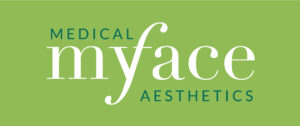The Growing Trend of Men in Aesthetics

A New Era of Skincare and Haircare
In the past, conversations about skincare, anti-ageing treatments, and haircare were primarily directed toward women. However, the tides have changed. Today, more men than ever are embracing the world of aesthetics, actively seeking ways to maintain their youth, enhance their appearance, and boost their confidence.
The Shift in Perception
The rise in men’s interest in aesthetics is not just a trend; it’s a cultural shift. For years, the beauty and wellness industry primarily targeted women, leaving men with limited options and often stigmatised for showing concern over their appearance. Now, this outdated narrative is fading. Men are beginning to understand that taking care of their skin and hair isn’t just about vanity—it’s about self-care and confidence.
This shift is partly due to changing societal norms. The stereotype of the rugged, unkempt man is being replaced by an appreciation for the well-groomed, health-conscious male. Influenced by social media, celebrity culture, and a greater emphasis on wellness, men are recognizing the benefits of investing in their appearance.
The Rise of Male Grooming Products
With this shift has come an explosion of products specifically designed for men. No longer are men confined to using basic soap and water routines; the market is now flooded with male-specific moisturisers, serums, anti-ageing creams, and hair care products. Brands have recognised that men have different skin needs—often oilier, thicker, and more prone to irritation due to shaving—and have tailored their products accordingly.
Haircare is another area seeing significant growth. Men are no longer just looking for products to combat hair loss but are also investing in treatments that improve hair health, texture, and appearance. From specialty shampoos and conditioners to in jevtables that can reduce hair loss and protect the hair follicles, the options are vast and varied.
Anti-Ageing: A Key Concern
One of the most significant drivers behind this trend is the desire to look younger. As men age, many start to notice fine lines, wrinkles, and thinning hair—common signs of ageing that can impact self-esteem. The demand for non-invasive cosmetic procedures, such as anti wrinkle and fillers, has surged among men. These treatments offer a way to subtly reduce the signs of ageingwithout the need for surgery.
The Role of Social Media and Celebrity Influence
Social media platforms like Instagram and TikTok have played a significant role in normalising men’s skincare and grooming routines. Influencers and celebrities openly sharing their beauty regimens have demystified the process, making it more accessible and acceptable for the average man.
Male celebrities, in particular, have been instrumental in this shift. From David Beckham’s well-documented grooming habits to Pharrell Williams launching his own skincare line, these public figures have shown that caring about your appearance is not only acceptable but also admirable.
The Psychological Benefits
Beyond the physical benefits, there’s a psychological aspect to consider. When men take care of their appearance, it can significantly boost their confidence and self-esteem. Looking good often translates to feeling good, which can positively impact all areas of life, from personal relationships to professional success.
The Future of Men in Aesthetics
As the trend of men investing in their appearance continues to grow, we can expect to see even more innovation in the field of male aesthetics. The industry will likely continue to expand its offerings, providing men with even more tailored products and treatments.
In conclusion, the growing trend of men embracing aesthetics is a positive movement that reflects broader cultural shifts. It’s about self-care, confidence, and challenging outdated stereotypes. As more men invest in their appearance, the idea that skincare and haircare are gendered activities will hopefully become a thing of the past. After all, everyone deserves to look and feel their best, regardless of gender.


